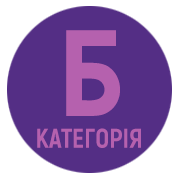HOMESCHOOL OF CHILDREN WITH SPECIAL EDUCATIONAL NEEDS IN SECONDARY AND SPECIAL EDUCATION INSTITUTIONS
DOI:
https://doi.org/10.32782/inclusion/2024.4.3Keywords:
homeschooling, pedagogical patronage, correction, inclusionAbstract
Educational and rehabilitation centers and special educational institutions are institutions where educational services and correction are provided in accordance with the conclusions of inclusive resource centers depending on the level of support for a child with special educational needs or a disability. The form of education in accordance with the current legislation of Ukraine and the educational institution is chosen by parents. According to the form of education, a package of documents is required, which is determined by certain normative acts of the Ministry of Education in Ukraine. The need for a collective component consists in the comprehensive psychophysical development of a child with various forms of impairment, however, with certain forms of education, the lack of such a component or with a family form of education, such a task falls on the responsibility of the parents/official guardians of a child with special educational needs/disability, as well as the educational organization itself – the educational process. The issue of socialization of a child who is in a family form of education remains important for discussion, especially in the absence of visits to clubs or other centers with the opportunity to communicate or spend time with peers. The question of the expertise of parents/official guardians in the ability to use the latest technologies, assistive devices for teaching children with various psychophysical disorders, how to involve narrow-profile specialists: a psychologist, a speech therapist, a speech therapist. Teacher-rehabilitator, etc., if necessary, individually for each child, especially if this is indicated in the conclusion of the inclusive resource center: hours, who exactly the child needs and training in social and everyday skills, which the educational rehabilitation center and special educational institutions provide children within the educational framework – the educational process. The question of choosing exactly this form of education for a child is important today and becomes a challenge for educational and rehabilitation centers and special education institutions, as well as control of non-violation of the educational rights of children with special educational needs or disabilities.
References
Виноградова О. Інтегровані соціальні послуги як напрям соціалізації дітей з інвалідністю в громаді. Науковий часопис Національного педагогічного університету імені М. П. Драгоманова. Серія 5: Педагогічні науки: реалії та перспективи: зб. наук. праць. Київ : Видавничий дім «Гельветика». 2021. Вип. 79 (т.1). C. 73–76.
Кількість дітей з інвалідністю за даними Фонду соціального захисту осіб з інвалідністю. Київ, 2023. URL: https:// www.ispf.gov.ua/ (дата звернення: 17.10.2023).
Троян І., З якими викликами зіштовхнулася спеціальна освіта в Україні: що кажуть вчителі та які плани змін є в МОН. Київ, 2023. URL: https://nus.org.ua/articles/z-yakymy-vyklykamy-zishtovhnulasya-spetsialna-osvita-v-ukrayinishho-kazhut-vchyteli-ta-yaki-plany-zmin-ye-v-mon/. (дата звернення: 17.05.2024).
Debra Вell, Ultimate Guide to Homeschooling. Nashville, London, Vancouver: Thomas Nelson Inc. 1997. pp. 34–37.
Failure to Thrive in a Four-Month-Old Nursing Infant / Stein, Martin T., Kessler, Daniel B., Hubbard, Eustratia. : Journal of Developmental & Behavioral Pediatrics, 2004. pp. 69 –73.
Homeschooling Disadvantages: Five Reasons to Rethink Homeschooling, SQUIDOO. URL: http://www.squidoo.com/homeschooling_disadvantages (access 29.04. 2024).
Patricia M., Lines, Homeschooling Comes of Age. Educational Leadership, 54, 1996. pp. 63–67.







